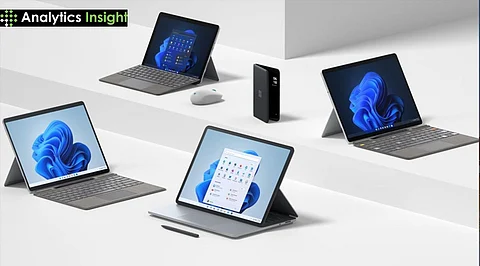

Microsoft is testing its new search feature with Windows 11 users, which enables it to enter the AI search market. The same feature will become available in the public space. Microsoft wants to be part of the AI space, where major players like Google and OpenAI are already big participants.
Windows 11 beta offers a preview of what AI search will look like. However, this feature is only available for users who own the latest Windows 11 laptops. This algorithm is limited to the hardware proposed because the hardware is required to enable the processing of AI queries securely on-device.
One of its main challenges is that Microsoft’s AI search relies too much on newer devices. The feature is exclusive to PC users with the latest NPU (Neural Processing Unit) technology. These units perform AI tasks directly on the device, offering enhanced user data security. Users who have older devices won’t have access to the AI search tools unless they upgrade to compatible models.
This requirement to use the latest Copilot Plus PCs means that not everyone can benefit from the feature, as it is only available to those with the latest hardware, those equipped with the Snapdragon X processor. On-device processing, as adopted by Microsoft, minimizes the risk of a data breach because the sensitive data is processed within the user’s device.
The AI search feature on Windows 11 works with various local file formats, including TXT, JPEG, PDF, and PNG. It enables users to search their documents and perform queries using their operating system. However, future integration of OneDrive cloud data into the search service will necessitate a change from on-device processing to online searches.
The company has not yet confirmed how this will work, but it’s expected that users will be able to search their cloud-stored files as well. However, this transition may involve linking the device to the internet, which could change the nature of how AI search queries are processed.
Meanwhile, OpenAI is also stealing the spotlight with its next-gen AI developments. According to reports, OpenAI is developing an AI super agent set to be released in early 2025. This agent could write code or book flights independently—like human intelligence running at a high level of proficiency.
OpenAI executives—including chief executive Sam Altman—have discussed on more than one occasion the economic growth that AI could bring and how AI could fit into other industries. According to Altman, AI agents, for example, could be integrated into the workforce by as early as 2025, making changes in businesses and productivity look.
